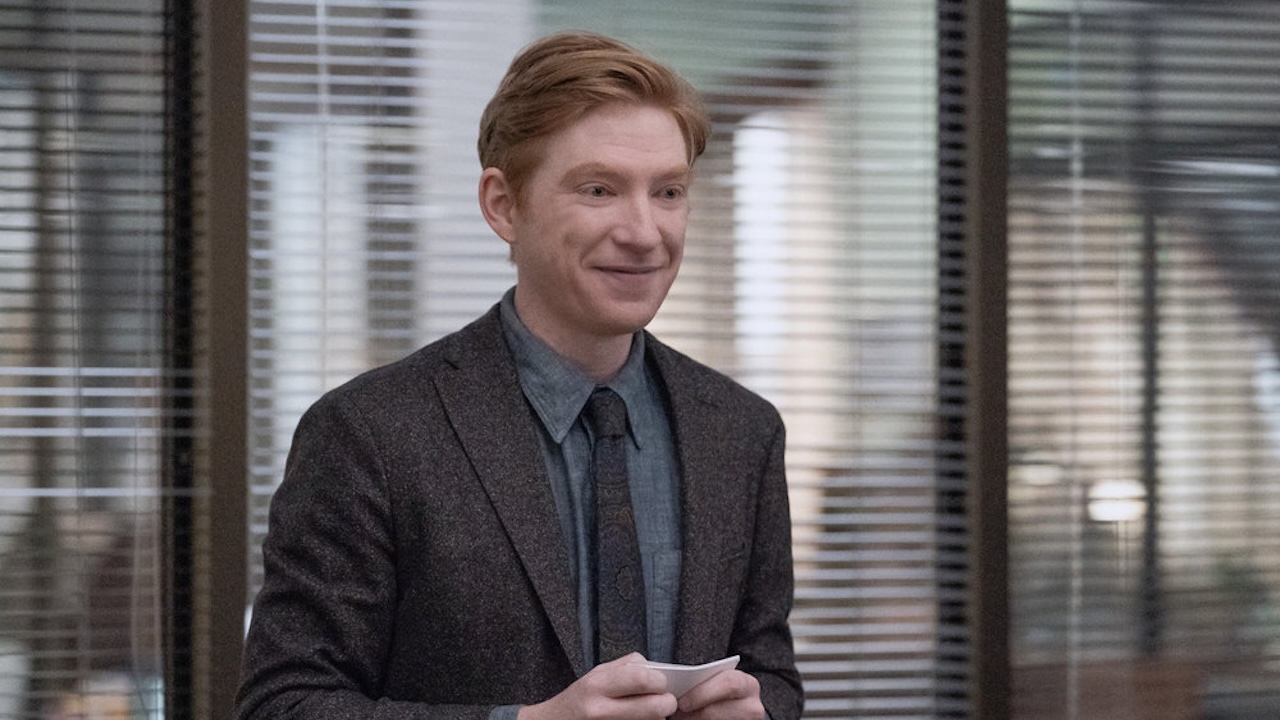Dune: Part Two Ending Explained: What Happens, What It Means, And How It Sets Up The Story For A Sequel
Major spoilers for the ending of Dune: Part Two!
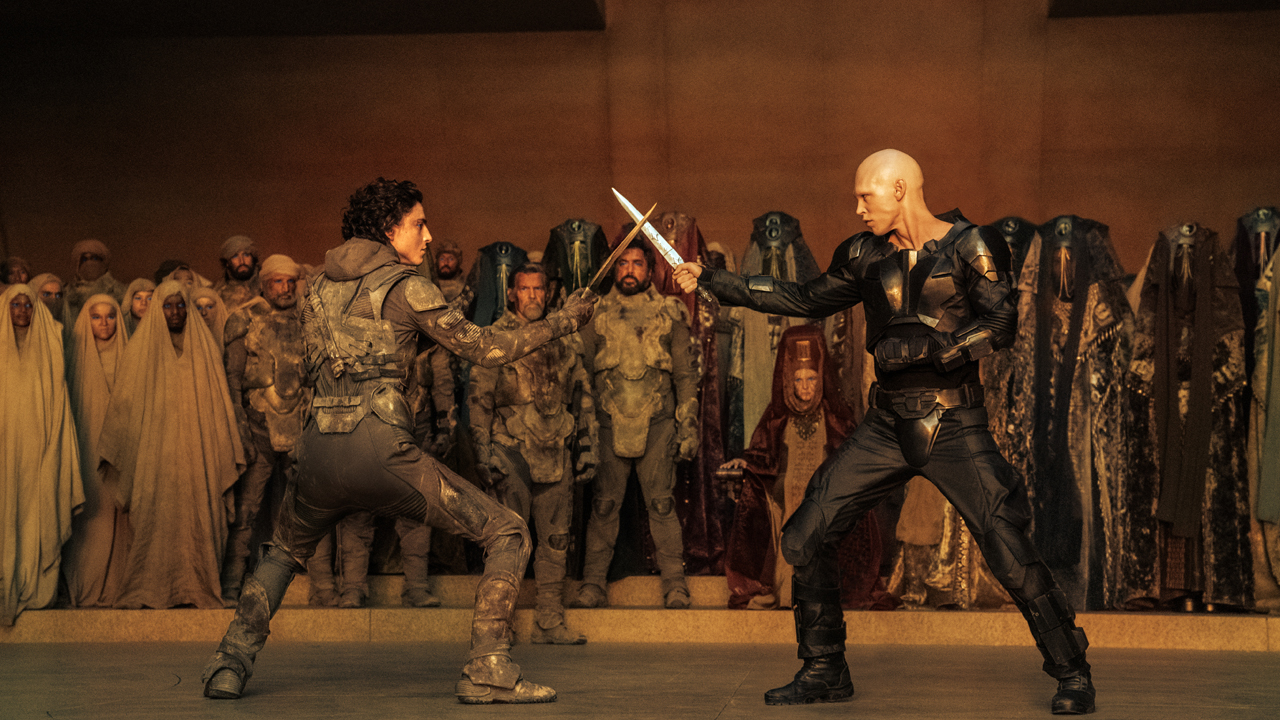
SPOILER WARNING: The following article contains massive spoilers for Dune: Part Two. If you have not yet seen the film, proceed at your own risk!
Writer/director Denis Villeneuve has a vision, and we have now seen two-thirds of it completed. With the release of Dune: Part Two, it can be said that the filmmaker has crafted the most epic and faithful adaptation possible of author Frank Herbert’s novel… but he’s not done yet. Still ahead for him is the first ever big screen take on Dune: Messiah, and knowing that makes the ending of his 2024 blockbuster all the more exciting.
While still very much being what’s on the page, Dune: Part Two’s ending is particularly exciting when you look at it through the lens of anticipating what’s to come – and it’s for that reason that I’ve put together this feature. I’ll dissect what it means to have the final moments in the film be with Chani and how events set up what’s (hopefully) on the way, but first, let’s do a quick recap of what plays out in the movie’s final scenes:
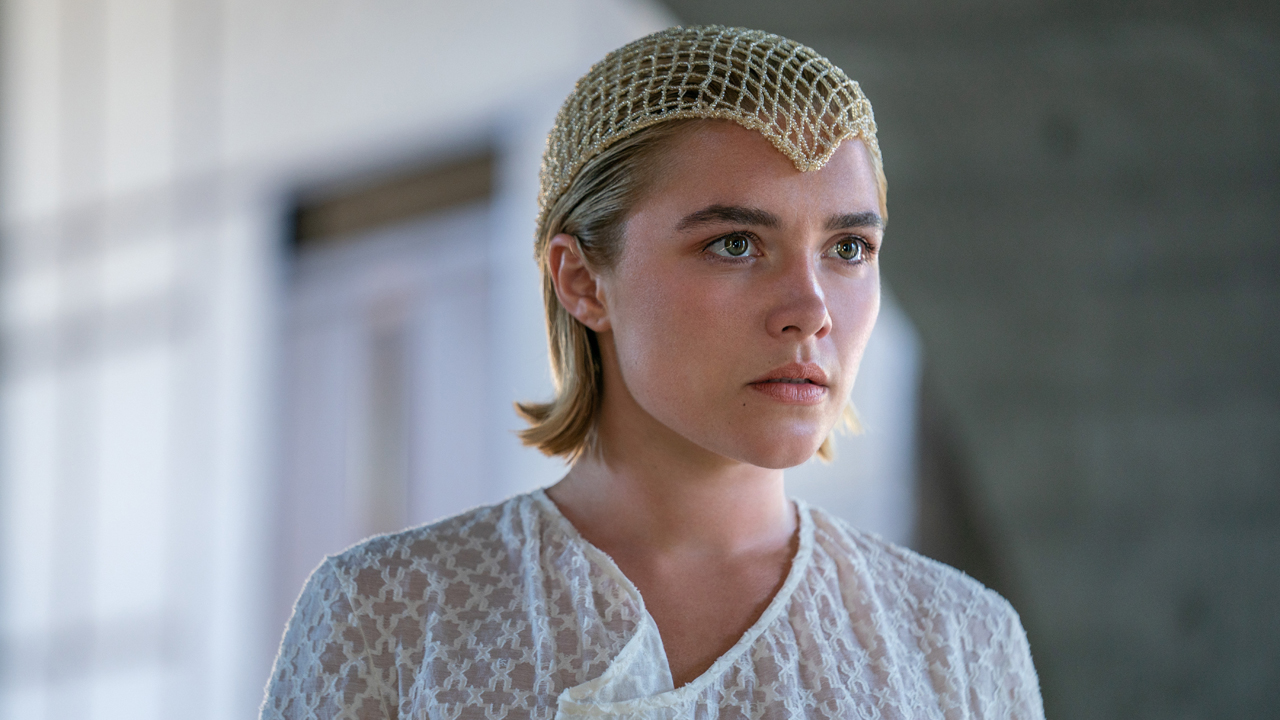
What Happens At The End Of Dune: Part Two
With Paul prepared to use his family’s nuclear weapon cache to completely destroy the universe’s one source of the spice melange, he challenges Emperor Shaddam Corrino IV to name a champion to defend his throne in a duel – offering to depose him while also agreeing to marry his daughter, Princess Irulan (a declaration that shocks Chani). The Emperor naturally chooses Feyd-Rautha, and while Gurney Halleck volunteers to fight on Paul’s behalf, Muad'dib chooses to fight for himself.
Face to face for the first time, Paul greets Feyd-Rautha as a cousin, but the familial connection offers only a touch of surprise and no sympathy (in fact, Feyd successfully turns the reveal into a threat). With blades in hand, the two of them begin to fight, and it is a ferocious battle. When Paul is stabbed in the chest, he appears to be doomed, and the move earns shocked reactions from those assembled, but he is able to get the upper hand and delivers a fatal blow with a stab to his opponent’s abdomen. Paul goes over to the Emperor and has him kneel at his feet and kiss the ring. At this, everyone else in the room kneels… with the exception of Chani, who stands defiantly before leaving the room.
As chants of “Lisan al Gaib” ring out, Paul gets word that the other great houses have rejected his threat to destroy Arrakis, and Fremen army and ships take flight for the jihad ahead. As Alia askes Jessica what is happening, the Reverend Mother confirms to the unborn Alia that a holy war has begun. Beyond this celebration, Chani finds herself alone in the Arrakis desert. She plants a thumper to call a worm, prepares her hooks to travel far away, and as we witness her determined face, the film cuts to black.
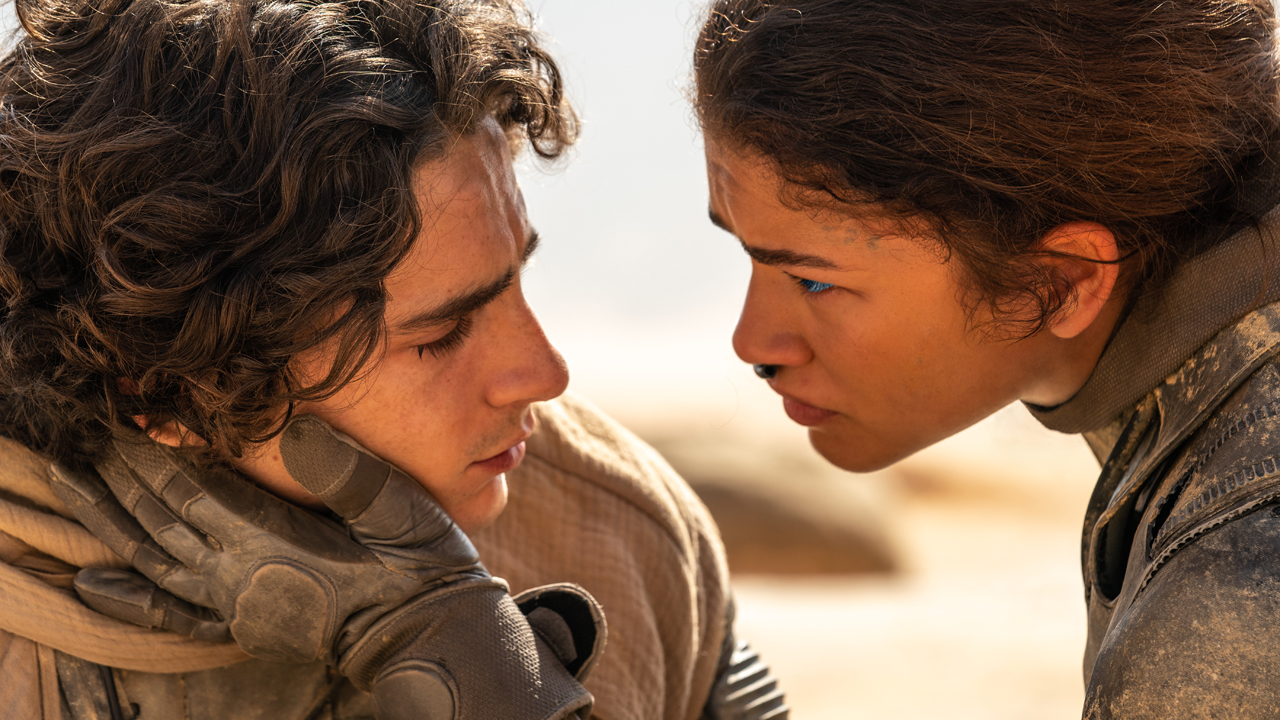
Why Is Chani So Furious At The End Of Dune: Part Two?
Of the few but impactful changes Villeneuve makes from the source material with Dune: Part Two, the depth provided to Zendaya’s Chani is the best. Specifically, I’m referring to her rejection of the blossoming zealotry among the Fremen and the Bene Gesserit prophecy that suggests that Paul Atreides is a chosen one who is meant to lead them. While Stilgar is eager to accept any and every indication that the Lisan al Gaib has arrived on Arrakis, and Lady Jessica (in collaboration with the unborn Alia) does everything she can as a Reverend Mother to push the narrative, Chani is the presence in Paul’s life who keeps him grounded, and she steers him away from the death-filled vision of the future that horrifies him.
Your Daily Blend of Entertainment News
But Chani’s faith in the man she loves is betrayed. Paul knows from his Bene Gesserit abilities that a living nightmare awaits if he makes his way to the southern hemisphere of Arrakis and drinks The Water Of Life, and Chani is proud of his defiance as the guerilla war is raged against the Harkonnens – but there’s a draw that Paul cannot ultimately resist. To the horror of the young Fremen woman, he accepts his place at the forefront of an intergalactic jihad, drinks the worm's poison, travels south, and even fully embraces his own Harkonnen heritage.
Of course, that’s not all. While Paul is honest in his love of Chani, once again declaring, “I will love you as long as I breathe” prior to the final negotiations, there is unquestionable hurt when Paul agrees to take Princess Irulan’s hand in marriage as he ascends to the role of Emperor. Instead of being his wife, Chani is to be remembered in history only as Paul’s concubine. Can you blame her for being so pissed?
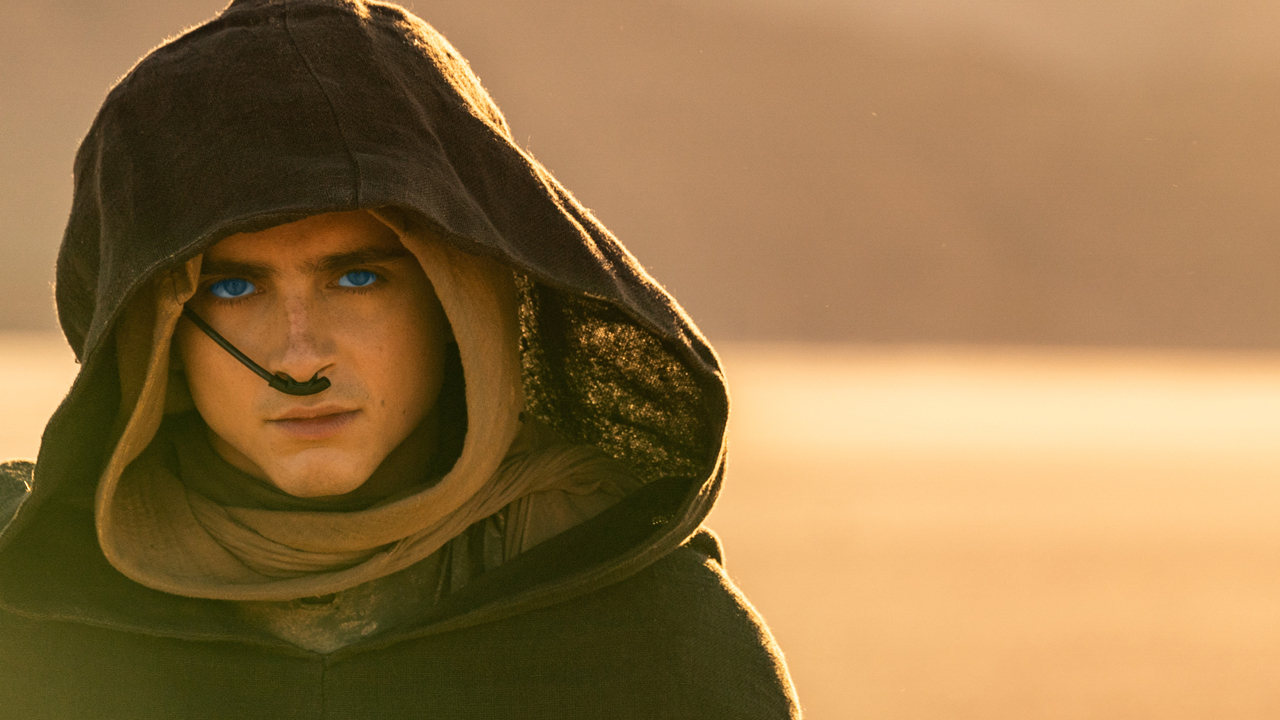
Where Does The Story Of Dune Go From Here?
Truth be told, we may not get to see where the story goes from here. Much like how Dune: Part Two wasn’t given the green light when I wrote my feature about Dune: Part One’s ending back in 2021, the blockbuster sequel has arrived in theaters without a franchise future being certain – despite the fact that Denis Villeneuve has spent years talking about his vision for Dune: Messiah. Audiences may eventually have to simply accept the dark developments at the end of the 2024 film as closure… but if the follow-up does happen, there’s a lot to anticipate.
Without giving too much away (Go read the book!), Messiah picks up a dozen years after the end of Frank Herbert’s Dune, and Paul remains Emperor following the deaths of millions upon millions across the galaxies. Though his abilities allow him to essentially become all-seeing, two conspiracies are orchestrated in his court. Wanting to give birth to a royal child herself, Princess Irulan drugs Chani with contraceptives; meanwhile, there is a collective effort from rivals to usurp the throne by introducing a Manchurian Candidate-esque spy with a familiar face that Paul can’t refuse.
Even if he does get the greenlight to make the second sequel soon, Denis Villeneuve has spoken about wanting to create a bit of distance between Dune: Part Two and Messiah – which also just makes logical sense for the cast. If the filmmaker wants to keep his all-star cast playing the characters through the narrative time jump, it makes sense to let the actors grow a bit older and not have the production rely on aging makeup. Regardless of when the movie happens, the hope is just that it happens eventually.
Dune: Part Two is now playing in theaters everywhere, and as I note in my CinemaBlend review of the film, it demands to be seen on the biggest screen possible (and hopefully you fulfilled that demand before you started reading this feature). If you’re looking to watch its predecessor before doing a rewatch of the sequel, all you need is a Netflix subscription to get instant access.

Eric Eisenberg is the Assistant Managing Editor at CinemaBlend. After graduating Boston University and earning a bachelor’s degree in journalism, he took a part-time job as a staff writer for CinemaBlend, and after six months was offered the opportunity to move to Los Angeles and take on a newly created West Coast Editor position. Over a decade later, he's continuing to advance his interests and expertise. In addition to conducting filmmaker interviews and contributing to the news and feature content of the site, Eric also oversees the Movie Reviews section, writes the the weekend box office report (published Sundays), and is the site's resident Stephen King expert. He has two King-related columns.
